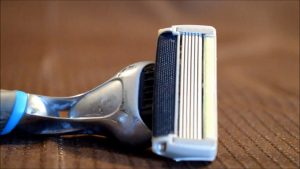- About Ramapo
- Academics
- Admissions & Aid
- Student Life
- Athletics
- Alumni
- Arts & Community
- Quick Links
- Apply
- Visit
- Give
Ramapo College Articles
Shaving Burn

One of the most remarkable aspects of disruption is that it typically happens under full view of industry participants. New entrants, armed with a good enough and usually cheaper solution, simply wade across the moat into the low end of the market. The incumbents, drunk on their own success, dismiss the interlopers as a nuisance, or worse, decide to concede the low end in order to redeploy capital into higher margin products.
What’s more, incumbents often pave the way for new entrants by overshooting the market with costly product features that far exceed the job to be done. The new players are often more nimble and humble than their larger competitors and any hint of success only fuels their passions. When the counterinsurgency is finally unleashed, it’s usually too late and the market is forever changed.
This very drama is in full view once again in the wake of Gillette’s recent decision to cut blade prices by up to 20%. Not only is it good theater, it should be required reading for all business managers. Gillette, the market share leader with 70% of the shaving market in 2010, saw little to worry about from two fledgling upstarts – The Dollar Shave Club and Harry’s. However, with its market share now at 54%, the price cuts are an ominous sign for Gillette, underscoring the limits of its seemingly endless product improvements and higher price strategy.
Sensitive (skin) consumers finally decided that the cost of a 5-blade, double strip, rotating and vibrating shave was just too much. Not to worry, Gillette has reportedly filed patents on a heated blade technology. Now you’re talking! You might have guessed that something was amiss when a retail store clerk had to be summoned to access replacement cartridges that were kept under lock and key. According to a WSJ article, the cheapest cartridge from Dollar Shave is 20 cents vs. $2-$6 dollars for a single Gillette cartridge.
What strikes me about this story is how quickly this corporate drama unfolded. The Dollar Shave Club was only 5 years old when Unilever purchased it for $1B in 2016. Harry’s, founded in 2013, was estimated to be worth nearly as much. On the heels of the Dollar acquisition, Gillette’s owners admitted that “It was probably on the radar screen but we weren’t necessarily having the right conversation around what might disrupt us.”
Really?
Categories: MBA
Copyright ©2024 Ramapo College Of New Jersey. Statements And Policies. Contact Webmaster.

Follow Ramapo